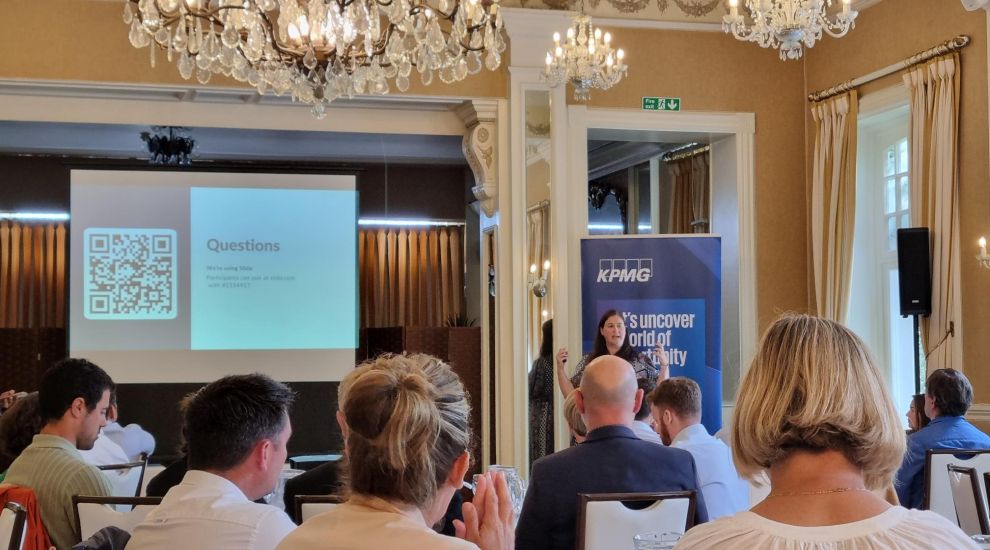


Talking the talk and walking the walk on net zero actions is important to remain “relevant” on the world stage, the Guernsey Chamber of Commerce has been told.
Michelle Ryan, Chair of a group of Jersey-based climate advisors, told local businesspeople that having a clear plan on achieving net zero gives jurisdictions “a social licence to operate” and ensure access to global supply chains.
“Places need to be able to talk credibly,” she said, highlighting that average global temperatures in the last decade rose by 1.2 degrees, just shy of global targets to stem rises below 1.5 degrees.
She laid out Jersey’s approach to achieving net zero emissions to offer guidance to businesses and policy makers here, which included informing the plan with principles drafted through citizen assemblies.
This approach meant the views of the public would never be bled out of the plans even if governments or policies change, Ms Ryan said.
But she accepted that the energy transition must be “just” and “not at all costs” since around 40% of people are currently unable to afford and electric car.
Upskilling is also key, she added, saying there’s no shortage of heat pumps or public subsidies, but there is a lack of trained installers and engineers which take years to enter the market.
It’s understood that Guernsey won’t be using citizen assemblies as it prepares to publish its official net zero plan.

Pictured: Guernsey is signed up to the Paris Agreement which seeks to limit the rise in global temperatures.
Ms Ryan said consulting the public formally allowed suggestions to be incorporated into the law and would protect future generations, mirroring similar moves in Wales to ensure policy decisions took account of the effect on unborn citizens.
Businesses have a responsibility too to direct private investment into innovative small companies or offer services for free such a secretarial or legal advice, she said.
Jersey’s government have created a climate fund with a budget created out of emission and fuel duty, but Ms Ryan said as more people switch to green alternatives the funds budget is shrinking.
The cash is used to fund subsidies and public engagement.
Transport through private vehicles is the leading cause of emissions in the islands, followed by heating and cooling properties, businesses, and waste, Ms Ryan said.
She warned that the lack of paid parking in Guernsey was disincentivizing eco and active travel, as wealth as health benefits, highlighting that St Helier parking ranges from between £15 to £25 per day.
Guernsey’s Environment President, Deputy Lindsay de Sausmarez, speaking from the audience, said the Channel Islands approach has much in common and cooperation between civil servants and politicians has been occurring “for some time” on the matter.
She said Guernsey was on track to hit its first net zero targets in 2030, but “politics” has got in the way of publishing the States’ net zero strategy.
Deputy de Sausmarez added that Guernsey is including additional data in its emissions accounting, such as energy used in other jurisdictions but not created locally such as parcel shipping and cruise ship visits.
But she said we aren’t in competition with Jersey on environmental matters.
Comments
Comments on this story express the views of the commentator only, not Bailiwick Publishing. We are unable to guarantee the accuracy of any of those comments.